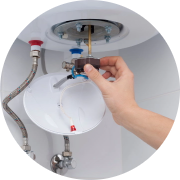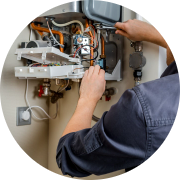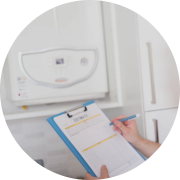Often, finding the ideal boiler for your home is not as simple as it sounds. Many new homeowners, or people in need of urgent boiler replacements, find themselves overwhelmed with options when it comes to boiler brands, sizes and prices. So it’s safe to say, there’s no simple answer to the question “what boiler do I need?”. Luckily, this guide is here to help you find the perfect choice for your home.
What Are the Different Boiler Types?
There’s no doubt that boilers have evolved massively over the years, but nowadays there are three main types of boiler for homeowners to choose from. They each have their own benefits, and often are more suited to specific types of home.
- Regular – Best For Older/Larger Homes
Regular boilers are the most traditional type of boiler. You will usually find regular boilers in the attic or garage of older homes. They require tanks as well as a hot water storage cylinder, so are much bulkier. However, they are very efficient, providing daily hot water and central heating when needed.
- Combination – Best For Modern/Smaller Homes
Combination (combi) boilers are named as such because they provide hot water and central heating from one unit. The water is heated instantly, which means they are not only efficient, but cost effective.
- System – Best For Newer/Larger Homes
System boilers are usually pricier than regular or combi boilers, but this price comes with increased reliability. System boilers tend to work better for larger homes as they require a hot water tank.

What To Consider When Choosing A Boiler
Deciding on the ideal boiler you need for your home is far more straightforward when you can narrow down your options. We’ve already looked at how the home you have might affect your choice, but in this section we will delve deeper into the specifics. To help you condense your options, here are some of the key things you can consider when deciding which boiler is right for you.
- Warranty
You will find that most boilers have a 5+ year warranty. This might seem perfect for new homeowners who will likely move to a new property relatively quickly, but for those choosing to settle down in a home for 10+ years, searching for a boiler with a longer warranty is probably a better option. While this may come at an increased cost, it will certainly make savings for you in the long run and you will spend less on repairs and replacements.
- Size
Boiler sizes can vary quite significantly, especially if you compare specific types. For example, a regular boiler will take up far more room than a combi boiler due to it requiring an additional tank or storage cylinder. If you’re starting out in a small home, you will likely need the smallest combi boiler on the market – ideally small enough to be concealed in a kitchen cupboard. If you’re in a larger home, you might not be so concerned with concealing the unit, but there may still be restrictions in terms of where in your property the unit can go, especially if you will require a tank.
- Functionality
Once you have considered boiler type, size and warranty, you may be interested to assess some of the boiler’s additional features and functionalities. For example, is the unit simple to operate? Is the unit particularly quiet? Does it have a digital display? Is it scratch resistant? Specific information and special features for each boiler will be available on our website.
- Price
Price is no doubt a considerable factor when you’re asking yourself what boiler you need. Boiler costs can of course vary, but these variations are typically based on efficiency and any additional functionalities. It is usually recommended that you make initial decisions in terms of size and features before then comparing prices once your choices have been narrowed down. Try getting a quote with us and go through the personalised recommendation system.
Maintaining Your New Boiler
If after following this guide you’ve been able to decide which boiler you need to best suit your requirements, it’s time to think about how to get the most out of it and avoid paying for recurring repairs. Below are some of our top tips:
- Clean your boiler regularly: make sure your boiler is not collecting too much dust, and you will reduce the risk of needing premature repairs. For cleaning the inside of your boiler, it is best to contact a professional.
- Bleed your radiators: radiator maintenance is boiler maintenance. Make sure your radiators are working efficiently, and your boiler will not have to work so hard to transport heat around your home.
- Check the pressure: boilers can lose pressure over time, which decreases its efficiency. Check the gauge regularly and inform a professional if you are concerned.
- Ensure prompt repairs: if something is wrong with your boiler, for example if it is leaking, has a faulty part or has automatically shut down, make sure to contact an expert to fix the issue as soon as possible. Maintaining efficiency in this way will likely extend the life of your boiler, and reduce potential replacement costs for you.
We hope you enjoyed our guide on how to find your perfect boiler. If you need any additional assistance from us, we’re always happy to help.
Are you still asking yourself “what boiler do I need”? Why not use our personalised boiler recommendation system and browse the suggestions from our experts here at Bbright? Once you’ve found your perfect unit, you can get it installed the very next day.




